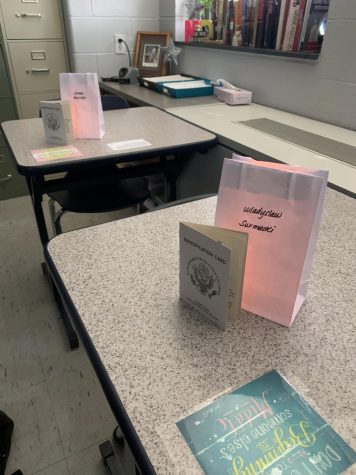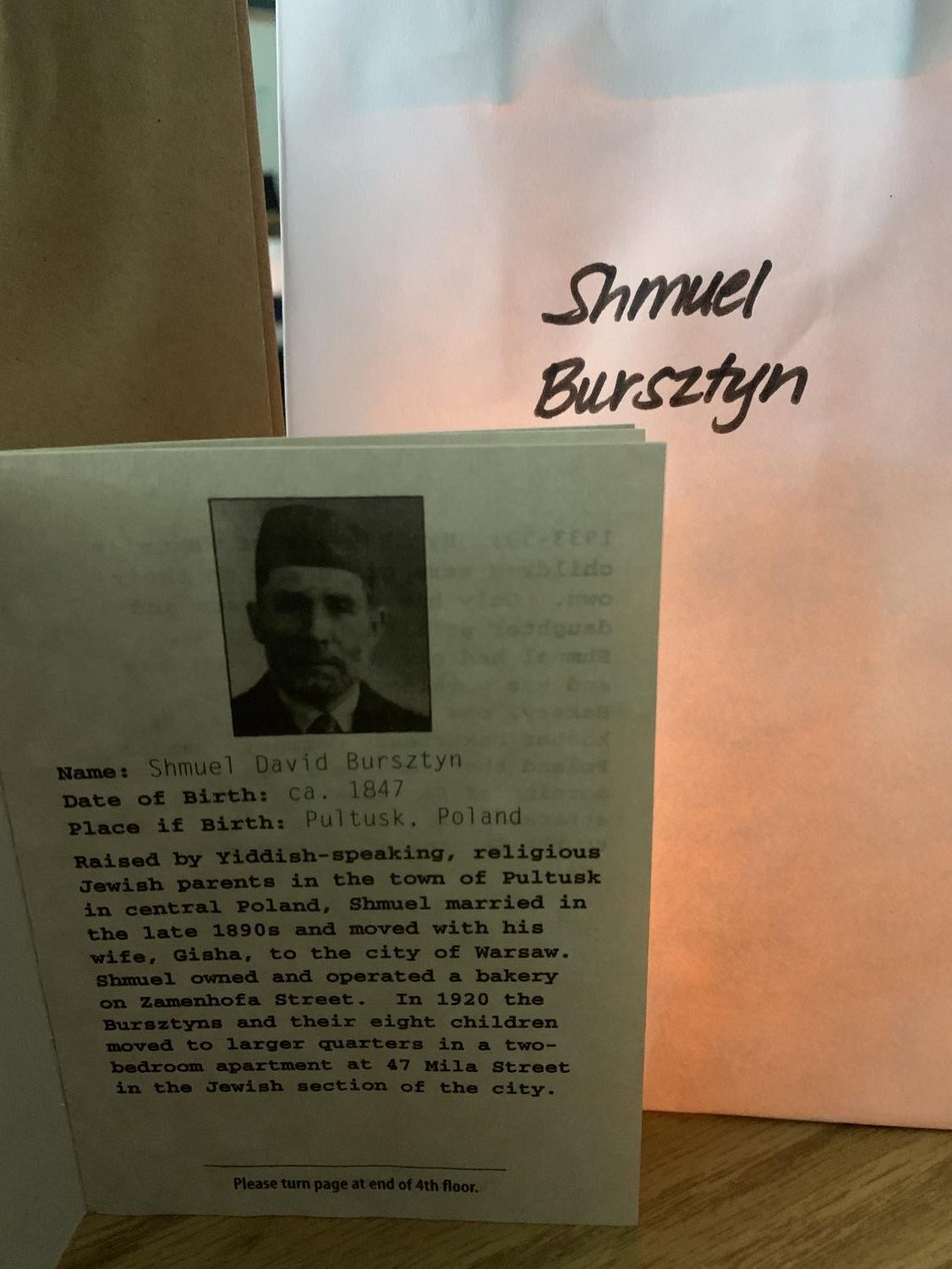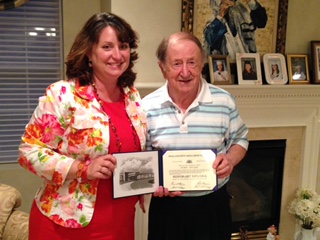Changing Students’ Perspectives of Holocaust
Mrs. Dallmeyer hopes when students enter her room, the relive history and learn more than just the past tragedies.
These 6 candles were used in Mrs. Dallmeyer’s Holocaust Studies class to represent the 6 million victims of the Holocaust.
The horrors of the Holocaust are arguably one of the hardest topics to teach in any history class; however, one Dallastown teacher has spent most of her career making an impact on students teaching this very topic.
Mrs. Molly Dallmeyer has been teaching the Holocaust Studies elective to DHS students for almost 20 years. For her, the reason is simple.
“I believe that the students should learn, so the past won’t repeat itself.”
Holocaust Remembrance day was on April 8, and Dallmeyer wanted to do something special in her classroom.
Students were given Identification cards with names and stories of holocaust survivors, and they were also given a bag with the name of the person they received with a candle to put in the bag.
Each student in the beginning of class turned on the candle and placed it in their bag on their desk.
They each read about their person’s life and said their names out loud to remember them. The project is called “Every Name Counts.”
There was a table in front of the classroom with six candles representing the six millions Jewish victims.
Dallmeyer then read poems and letters from holocaust victims that were left on walls, on pieces of paper, or letters sent to their family members.
Holocaust Remembrance Day is a day to take time to commemorate and remember the 6 million Jews and millions of others that were singled out by the Nazi party.
This being a tragedy of unimaginable proportions that unfolded all across the European landscape.

Dallmeyer started teaching this class because of the student requests for more information. When she taught American History, there was never enough time to cover the depth of the event.
In early 2000, she got the chance to start teaching this topic. Dallmeyer suggested the idea for this class when the social studies dept. was proposing new electives.
She feels rewarded and hopeful teaching her students because she hopes students won’t repeat the mistakes of the past. she hopes students learn how to treat people nicer and to open their eyes.
“When students first walk in my room at the beginning of year, they seem to be more worried about themselves and how they are perceived. By the end of the class, they start noticing the rest of the world around them,” Dallmeyer said.
“Students seem to notice that they themselves or the stranger sitting next to them can impact the world just by one decision.”
Students that don’t pay attention or talk much about their thoughts seem to get interested and when they write. Their reflections mature and are thoughtful about their learning.
The hardest parts of history need to be taught because the uncomfortable parts are always hidden to protect people from the ugliness of the world. If it’s not taught then there’s a chance of history being repeated.
Dallmeyer said, “ the hardest part in teaching these topics are killing fields, gas chambers, the camps, and the women and children’s experiences.”

Knowing that innocent people suffered and were murdered for their beliefs or lifestyle is a terrifying thing to imagine and learn about.
Dallmeyer knows that this class is an elective and not a requirement but feels this class teaches students how to understand how an event can shape a person’s individual life and how one decision can change someone’s life. One person can make a difference.
Dallmeyer met a Holocaust survivor through teaching this class and they became close friends. Rubin Sztajer would come in to talk to her class about his childhood in the holocaust. He talked about what had happened to him and his family. He would tell the students of what he had gone through in the camps and how he survived.
He did not have the chance to go to school when he was younger.
Dallastown High School granted him an honorary diploma in 2014. Sadly he passed away in 2018, but his name and story will never be forgotten, just like those remembered on Holocaust Remembrance Day

Your donation will support the student journalists of Dallastown Area High School. Your contribution will allow us to purchase equipment and cover our annual website hosting costs.